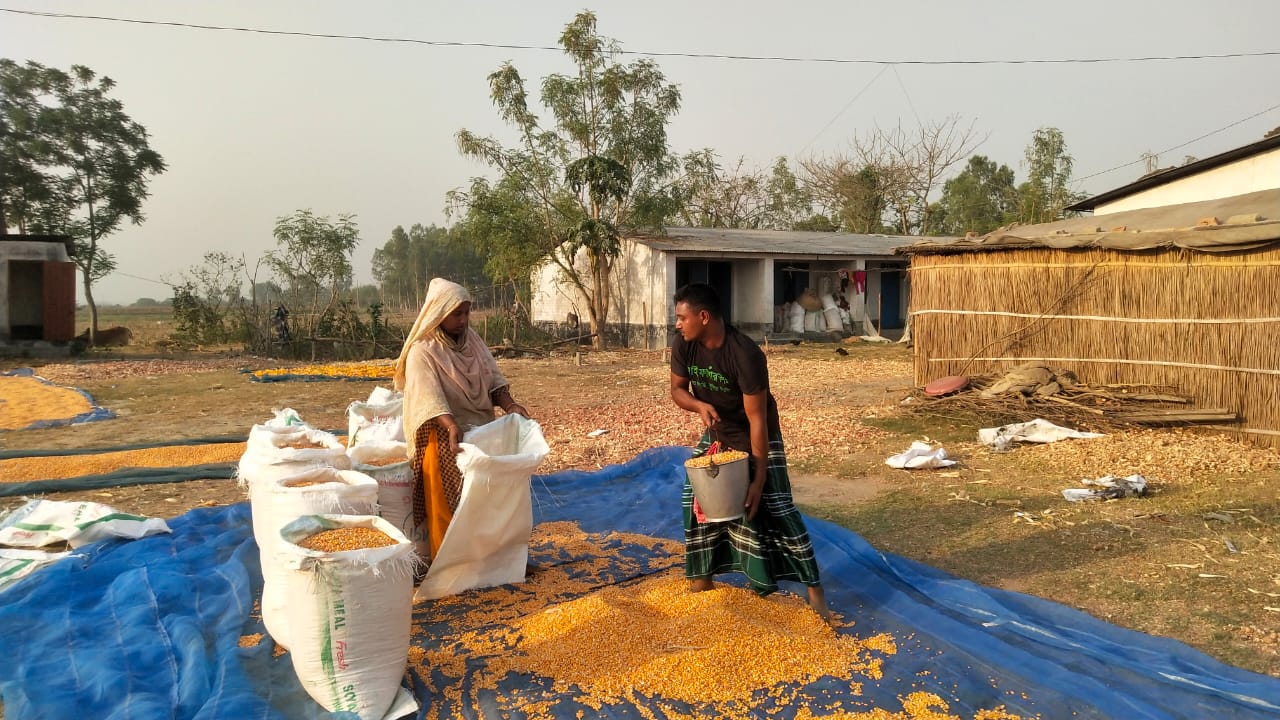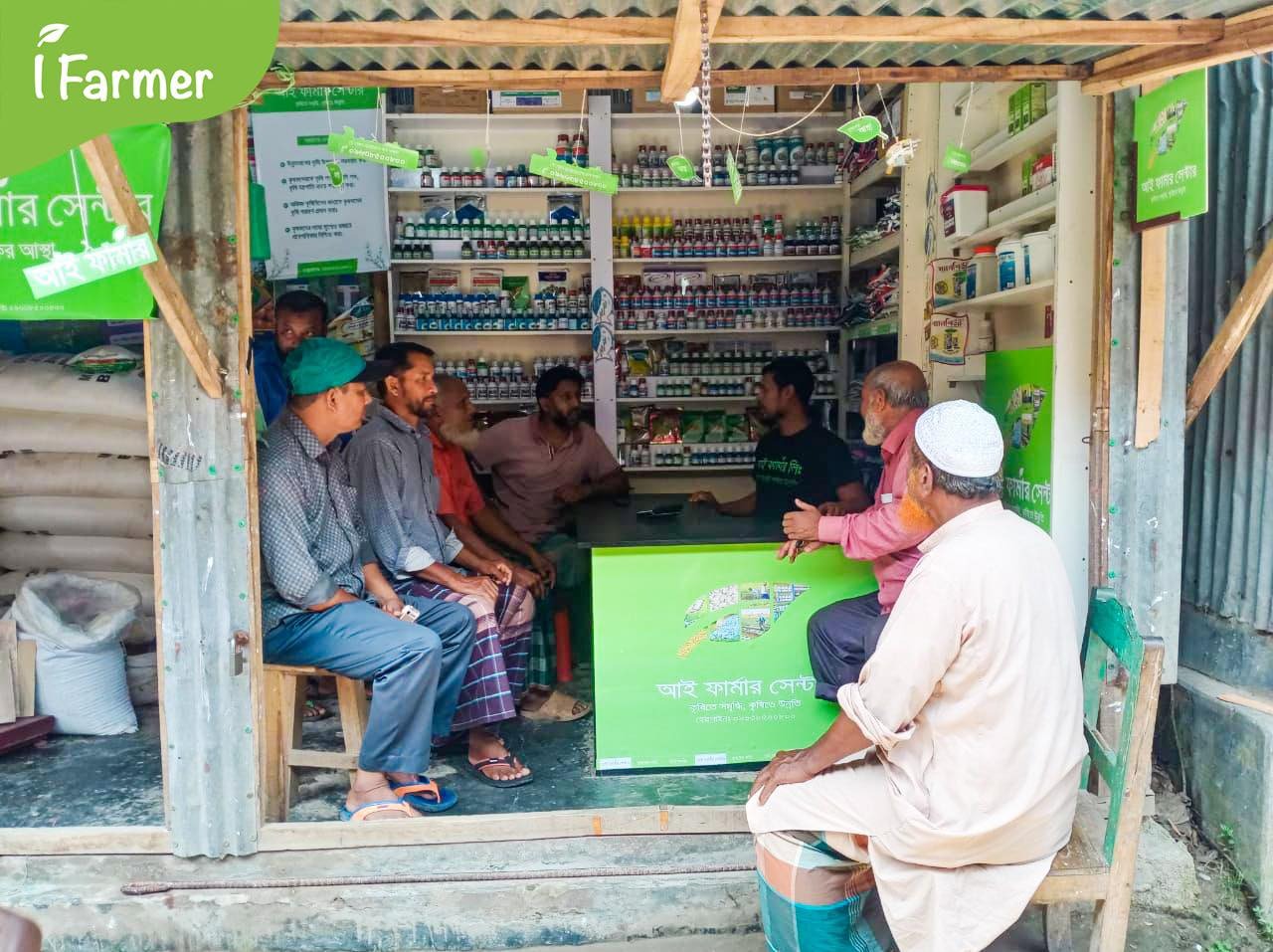
As the annual budget season approaches, heated discussions are a common thing, with various sectors and interest groups vying for attention and resources. Passionate debates ensue over tax policies, development priorities, which industries deserve more attention, and so on. There are sectors that have strong trade bodies and stakeholders who put forward their interests. However, one sector that often gets overlooked in these pre-budget discussions is agriculture–the very backbone of Bangladesh's economy.
Agriculture employs around 40% of the nation's labor force and contributes nearly 13% to the country's GDP. It makes the rural economy work and ensures food security for the country. The second-order impacts of agriculture are even more critical, serving as the backbone for many thriving industries by supplying raw materials and providing backward linkages. For those concerned about existential challenges like major pandemics or great power struggles such as significant wars, agriculture serves as the ultimate hedge, as evidenced during the recent coronavirus pandemic.
The relative importance of agriculture may have diminished in the minds of urban-dwelling men, but its significance as the linchpin of the economy, ecology, and livelihood remains unaltered.
While the importance of agriculture cannot be overstated, the sector's allocation in Bangladesh's national budgets over the past five fiscal years has been a tale of uneven success and missed opportunities. And the sector continues to grapple with a myriad of challenges that threaten its long-term productivity and sustainability. In the budget for the FY 2023-24, an allocation of BDT 43,700 crore, accounting for 5.7% of the total budget, has been made for the agriculture sector. This allocation reflects a 3.8% increase compared to the allocation in FY 2022-23 and a 19.5% decrease compared to the revised allocation of FY 2022-23. Budget allocation for the agriculture sector was Tk33,698 crore in FY 2022-23. In FY 2021-22, the allocation was 24,345 crore.
It is pertinent to note here that Bangladesh's agricultural feats are impressive. Once food-insecure, the country is now self-sufficient and one of the highest producers of a long list of agricultural products such as hilsa, jute, rice, onions, vegetables, tea, goat and goat meat, potatoes, and mangoes. Its climb to agricultural primacy has been remarkable.
Yet concerns persist that the government's budgetary allocation to the sector remains inadequate. Many experts argue more funds are needed for research and development, boosting productivity and climate change adaptation if agriculture is to realize its full potential. Maintaining the momentum of the sector will require opening the coffers further and implementing thoughtful and forward-looking initiatives.
As we approach the upcoming budget, there is a growing consensus that a more transformative approach is needed to unlock the true potential of Bangladesh's agricultural sector. From limited access to finance and markets to inadequate infrastructure, resource constraints, and the looming specter of climate change, Bangladesh's farmers face an uphill battle in realizing the full potential of their lands and labor. As the dark clouds of erratic rainfall, rising temperatures, and extreme weather events loom large, the urgency to future-proof the agricultural sector becomes ever more pressing.
In the following sections, we discuss a set of ideas to transform Bangladesh's agricultural sector as we approach the next budget. This is not merely an economic imperative but a matter of national security and achieving sustainable development goals.
Let's start with the basics–better seeds, better crops, better yields. Bangladesh needs a major injection of funds into agricultural R&D to develop climate-resilient crop varieties that can withstand the vagaries of an increasingly unpredictable climate. From drought-tolerant rice to heat-resistant vegetables, these new varieties could be game-changers for farmers battling extreme weather. Allocating a meaningful portion of the total agricultural budget towards research and development could help develop solutions for many of these challenges.
But it's not just about seeds. We need to rethink our entire approach to farming practices. Sustainable agriculture techniques like integrated pest management, usage of advanced agri-machineries, and climate-smart crops could not only boost yields but also protect the environment and conserve precious natural resources.
Imagine if every farmer had access to technology like precision farming tools, remote sensing, and digital platforms. Talk about a productivity revolution! By strengthening agricultural technology and extension services, we can empower farmers with the knowledge and tools to maximize their yields while minimizing their environmental footprint.
Diversifying agricultural production in line with changing consumption patterns is another area ripe for exploration. As incomes rise and tastes evolve, there's a growing demand for a wider variety of crops beyond the traditional staples. Meeting this demand could unlock new market opportunities for Bangladeshi farmers and should be a key consideration in allocating resources for crop research and development.
The other critical aspect of this is climate change, and we can't talk about sustainable agriculture without addressing it head-on. Expanding irrigation infrastructure, promoting farm mechanization, and developing resilience to climate change impacts should be top priorities. Because at the end of the day, all our efforts will be for naught if we can't adapt to the existential threat of a rapidly changing climate. The agricultural budget should dedicate resources to these climate-smart initiatives because it could be the difference between thriving and merely surviving in the face of a rapidly changing climate.
Farming is an uncertain business. One bad harvest, one natural disaster, and a family's entire livelihood can be wiped out. That's why access to affordable credit and crop insurance is crucial for smallholder farmers.
Imagine if every farmer had the financial means to invest in quality inputs, modern equipment, and innovative technologies. That's the kind of game-changing impact we could see by expanding agricultural credit facilities and tailoring them to the unique needs of the farming community. The Bangladesh government has taken meaningful initiatives over the years to make agriculture credit more widely accessible. However, making meaningful budget allocations to address this challenge could be a game-changer.
"Access to formal financial services is a major hurdle for smallholder farmers in Bangladesh,” explains Fahad Ifaz, Co-founder and CEO of iFarmer, one of the leading agri-tech players working at the intersection of agriculture financing, access to input, and access to market. “By leveraging technology and data-driven credit scoring models, agritech startups like iFarmer are working to bridge this gap and provide affordable financing solutions tailored to the unique needs of farmers. However, we cannot do it alone. Strategic budgetary support from the government, such as interest rate subsidies and credit guarantees, could be a game-changer in unlocking the flow of capital to the agriculture sector.”
And what about those sleepless nights worrying about the next flood or drought? Developing robust crop insurance schemes could provide farmers with a much-needed safety net, mitigating the risks of natural disasters and climate change.
By subsidizing premiums or offering reinsurance mechanisms, the government could encourage the widespread adoption of these risk-transfer instruments.
But it's not just about handouts, we need to empower farmers to help themselves. Facilitating the formation of farmer cooperatives and self-help groups could give smallholders a stronger voice and better bargaining power when it comes to accessing credit, inputs, and markets. Dedicating resources in the budget towards capacity-building and institutional support for these grassroots organizations could be a wise investment.
You know that feeling when you put in backbreaking work on the farm, only to see a significant chunk of your hard-earned produce go to waste due to a lack of proper storage or transportation, or a skewed supply chain dominated by middlemen? It's a gut punch and a reality for far too many Bangladeshi farmers.
That's why investing in cold storage facilities, processing units, modernized packaging, and strengthening agriculture value chains with technology adoption is so crucial. By allocating investment towards this critical infrastructure, we can minimize post-harvest losses and ensure that more of that precious produce makes it to market, translating into higher incomes for farmers and enhanced food security for the nation.
But it's not just about infrastructure, it's also about connecting farmers to markets. Initiatives like e-commerce platforms, farmer-producer organizations, and contract farming arrangements could be game-changers, linking smallholders directly with buyers and cutting out the middlemen who often siphon off a significant chunk of the profits. Allocating a portion of the budget to meaningful market linkage initiatives could pay dividends in the form of better price realization for farmers.
“The fragmented nature of Bangladesh's agricultural supply chain often results in inefficiencies, post-harvest losses, and unrealized value for farmers,” says Fahad. “Agritech platforms are disrupting this by directly connecting smallholders to buyers, providing real-time market information, and streamlining logistics. But scaling these solutions requires supportive infrastructure and an enabling policy environment.”
Imagine a future where Bangladeshi farmers can easily access real-time market information, negotiate fair prices, and get their produce to consumers in a timely and efficient manner. That's the kind of agricultural marketing revolution we need to strive for.

Knowledge is power and it is true anywhere you go. In the context of agriculture, empowering farmers with the right knowledge and skills could be the key to unlocking a sustainable and prosperous future for the sector.
Investing in agricultural education and vocational training programs isn't just about imparting technical know-how, it's about equipping farmers with the tools they need to navigate an increasingly complex and rapidly evolving agricultural landscape. Allocating funds toward establishing appropriate agricultural educational initiatives and skill development programs could be a game-changer.
Imagine farmer field schools and demonstration farms where hands-on learning is the norm, where cutting-edge techniques and technologies are demystified, and where the next generation of agricultural entrepreneurs is forged.
But it's not just about the farmers themselves, we need to build capacity across the entire value chain. From workers and input suppliers to processors and marketers, everyone needs to be on the same page when it comes to sustainable, climate-resilient agriculture.
Dedicating a portion of the budget to these learning programs could be a wise investment in human capital development.
Bangladesh's agriculture sector stands at a critical crossroads, facing the dual challenges of meeting the food demands of a rapidly growing population and adapting to the impacts of climate change. The upcoming budget presents an opportunity to chart a course toward a more resilient, productive, and sustainable agricultural future.
By prioritizing investments in research and development, credit and insurance facilities, marketing infrastructure, sustainable farming practices, and human capital development, the government can lay the foundations for a thriving agricultural sector.
However, these initiatives must be complemented by conducive policies, institutional reforms, and robust implementation mechanisms to ensure their effectiveness and long-term impact.
As Bangladesh strives to achieve its development goals and sustain food security for its growing population, a vibrant and productive agricultural sector is indispensable.
The upcoming budget must reflect this priority, allocating adequate resources and implementing strategic measures to nurture a resilient and sustainable agricultural ecosystem, one that not only feeds the nation but also catalyzes inclusive economic growth and prosperity for the countrymen.
